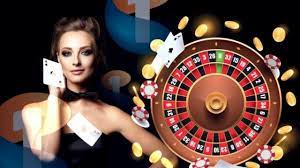Slot machines, often referred to as “one-armed bandits,” have become a staple in casinos worldwide. From their humble beginnings to the high-tech, interactive machines seen today, slots have evolved into a multi-billion-dollar industry, captivating players with the promise of big payouts and thrilling gameplay. Let’s take a closer look at the history, hire bodyguard london, and cultural impact of slot machines.
A Brief History of Slot Machines
The history of slot machines dates back to the late 19th century. The first-ever mechanical slot machine, known as the Liberty Bell, was invented by Charles Fey in 1895 in San Francisco, California. It featured three spinning reels and five symbols: horseshoes, diamonds, spades, hearts, and a Liberty Bell. The machine was revolutionary in that it used a random mechanism to determine the outcome of each spin, making it one of the earliest forms of gambling based on chance rather than skill.
This mechanical design laid the groundwork for future innovations. By the 1960s, electromechanical slot machines were introduced, allowing for the inclusion of more complex features like multiple paylines and bonus rounds. The invention of video slots in the 1970s further revolutionized the game, incorporating graphics, sound effects, and eventually, themed gameplay.
How Slot Machines Work
At their core, slot machines are fairly simple to understand. A player inserts money or credits into the machine and presses a button (or pulls a lever in older machines). The reels then spin and, if they land on a winning combination, the player is awarded a payout.
Modern slots utilize a random number generator (RNG) to ensure that each spin’s outcome is entirely random. The RNG generates thousands of potential outcomes per second, making each spin independent of the last. The odds of winning vary from machine to machine, with some slots offering higher payouts but lower chances of winning, and others featuring frequent smaller payouts.
There are two main types of slots:
- Mechanical Slots: These are the traditional machines with physical reels that spin when activated.
- Video Slots: These use digital displays and often feature advanced graphics, animations, and bonus rounds.
In both types, the objective is to line up symbols on a payline, which is often across the center of the reels. Some modern video slots have multiple paylines, increasing the chances of a winning combination.
The Rise of Online Slots
With the advent of the internet, slot machines transitioned from land-based casinos to the digital world. Online casinos began offering digital versions of popular slot machines, and soon, the market exploded with countless new online slot games. Today, online slots are an integral part of the gaming industry, with thousands of titles available across various platforms.
These online slots often feature enhanced graphics, special bonus rounds, and larger jackpots. Players can enjoy slots from the comfort of their homes or on the go with mobile devices. Online slots also allow for a wide range of betting options, catering to both low-stakes players and high rollers.
Slot Game Themes and Innovation
One of the key attractions of modern slot machines is their diversity in themes and features. Online slots, in particular, are known for their creative themes, ranging from ancient Egypt to popular movie franchises, fantasy worlds, or even quirky designs centered around animals and foods.
The incorporation of bonus rounds, free spins, and progressive jackpots has also added complexity to the gameplay. In progressive slots, a portion of each player’s wager contributes to a growing jackpot, which can be won by anyone playing the machine, making these games particularly exciting.
The Psychology Behind Slot Machines
The design of slot machines is carefully crafted to keep players engaged. The bright lights, sounds, and animations all play a role in creating a sensory experience that is hard to resist. The use of near-miss scenarios (when the reels almost align with a winning combination) is another tactic that encourages continued play, as players may feel that they are “close” to winning.
Additionally, the random nature of slot machines makes them inherently unpredictable, fostering a sense of excitement and anticipation. The frequent, smaller wins often provide reinforcement to keep playing, creating a cycle of engagement that can be difficult to break.
The Impact of Slot Machines on Gambling Culture
Slot machines have had a profound influence on the global gambling industry. Their simplicity, fast-paced nature, and the potential for large payouts have made them accessible to a wide audience. Many casual gamblers are drawn to slots because they do not require any special skills or strategies—just a bit of luck.
However, there are concerns about the addictive nature of slot machines. The combination of random outcomes, immediate results, and the potential for big payouts can lead to problematic gambling behavior in some players. Responsible gambling measures, such as self-exclusion tools and spending limits, are essential in helping to manage these risks.
Conclusion
Slot machines have come a long way since their inception in the late 19th century. From mechanical reels to the digital wonders seen in online casinos, slots have maintained their popularity by offering engaging gameplay, thrilling visuals, and the possibility of life-changing jackpots. Whether in a brick-and-mortar casino or through an online platform, slots continue to be one of the most beloved forms of entertainment for millions of players worldwide.
